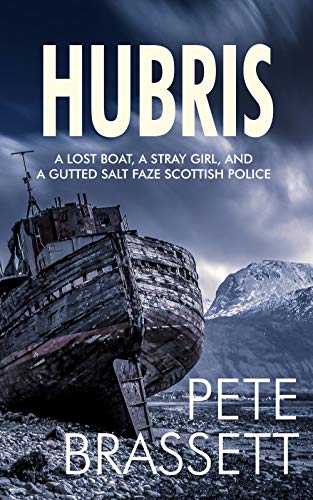
I’ve been reading Pete Brassett’s Inspector Munro mysteries for a while. I’m not sure I’m entirely on board with the new turn the series has taken, though. Our former hero, heretofore a paragon of physical fitness (mountain running was one of his favorite sports) has suddenly grown old. He’s had a heart attack and is retired – though he’s happy to assist his former subordinates on his own time.
So now the central character is Inspector “Charlie” West, a woman from London who overcame alcoholism after moving north to Scotland. She’s not a bad character, but it seems like everybody’s doing female detectives these days, and it annoys me.
Anyway, the latest book in the series, Hubris, involves a beached fishing boat which a farmer discovers on the shoreline of his property. Looking inside, he finds a man in the hold, gutted like a fish. Forensic evidence indicates the presence of drugs.
Meanwhile, that same farmer’s daughter has gone missing. Why did the family wait to alert the police?
Unsuspected connections will tie the two cases together, and old secrets will resurface to devastate lives. But the detectives are on it, and Inspector Munro will be on hand to provide guidance as well.
Hubris is a good, workmanlike police procedural, with only minimal objectionable content. The series is worth following.









